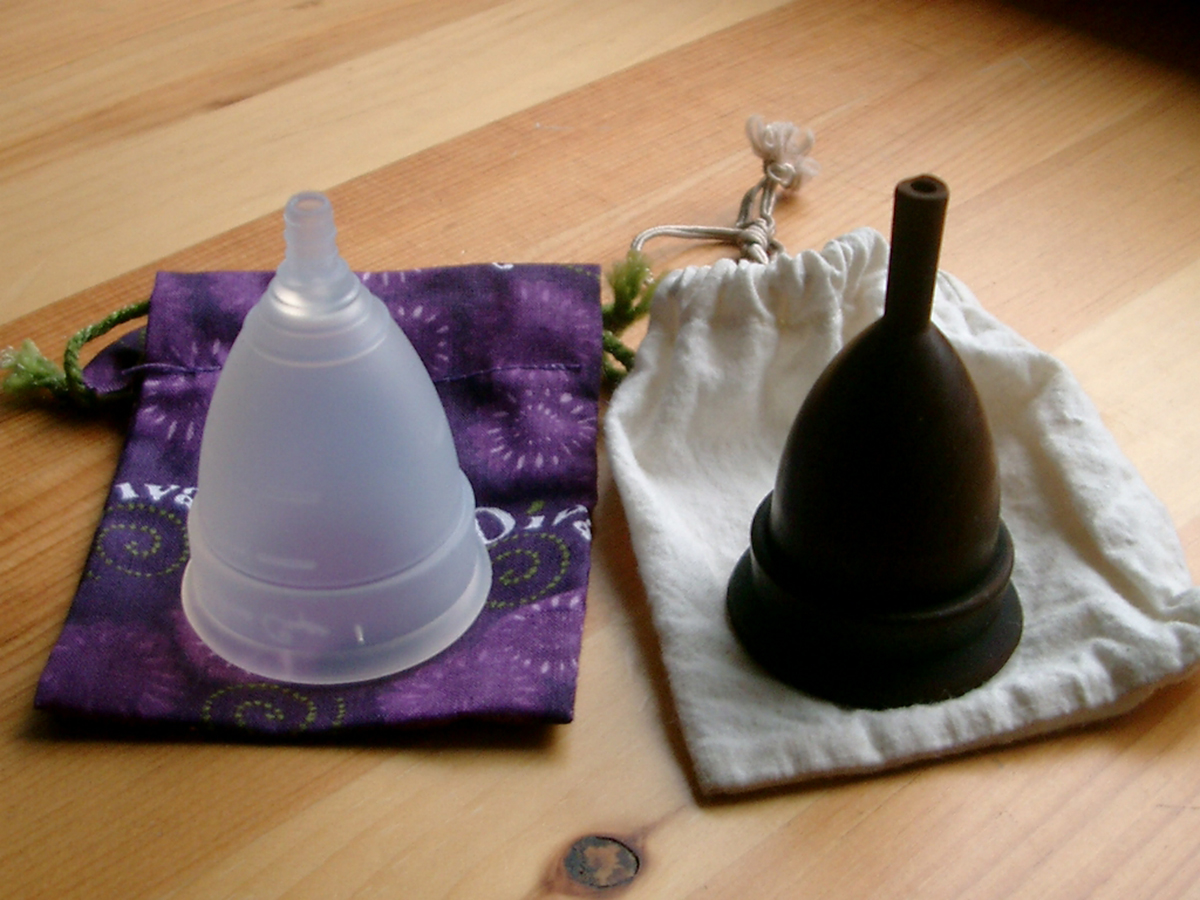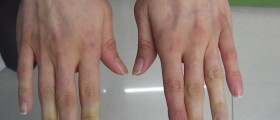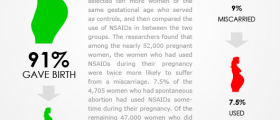
Painful Menstruation
Menstrual period may give a hard time to some women. Abdominal cramps are the most common problem that might appear just before or during the period. In most cases, these are not serious but unpleasant problems.
Other symptoms that follow menstruation might be: back pain, headache, nausea, vomiting, diarrhea, dizziness or pulling sensation in the thighs. Some women could also suffer from tachycardia, shaking of the body (also known as tremor) or excess sweating.
Another problem might be dysmenorrhea. This is a type of severe pain during the menstruation, which causes many women to consult a gynecologist. The pain is located in the lower part of abdomen and it hurts during the menstruation. Often, this condition affects the everyday routine and productivity at work or in school. In most cases, dysmenorrhea is so intense that it must be treated with some medications.
Dysmenorrhea could be primary or secondary condition.
Primary dysmenorrhea starts shortly after the first menstruation. The causes of this dysmenorrhea are prostaglandins, synthesized in uterus. These substances are responsible for uterus contraction, which might lead to those hurtful cramps in the lower abdomen. The pain in dysmenorrhea is worst during the first days of menstruation, which is consistent with prostaglandins release. The scientific studies have proven that women who experience menstruation pain synthesize more prostaglandins than the other women.
Secondary dysmenorrhea is frequent in women over 20, and can worsen at any time of the period: before, during and even after the menstruation. There are many different cause of secondary dysmenorrhea, including: endometriosis, fibroid, intrauterine devices, cervical stenosis, and pelvic inflammatory disease.
When consulting a doctor because of the menstrual pain, he/she will perform an exam, take a Pap smear and sometimes take blood and cultures. It might be necessary to perform ultrasound of the pelvis, in order to properly diagnose the condition.
Medications
There are some OTC (over the counter) medications that might help to ease the pain. Usually, women take some of the non steroidal anti-inflammatory drugs (NSAIDs), such as ibuprofen or naproxen. These medications block the prostaglandins and efficiently relieve the pain.
Take the drugs when the pain starts and drink tablets with some food, to prevent the nausea or heartburn. Do not take NSAIDs if you are allergic to Aspirin, have gastrointestinal problems, bleeding or liver problems. Sometimes, pain could be resistant to NSAIDs. Consult your doctor about the possible prescribed medications to get some relief.
If the medications don’t help, the next step is surgery. Laparoscopic procedure will take care of the existing medical problem which is causing painful periods. These may be endometriosis, cyst or some adhesions.

















Your thoughts on this
Loading...